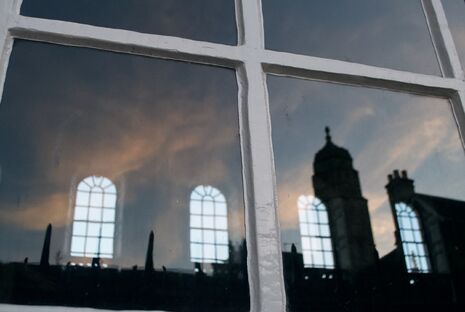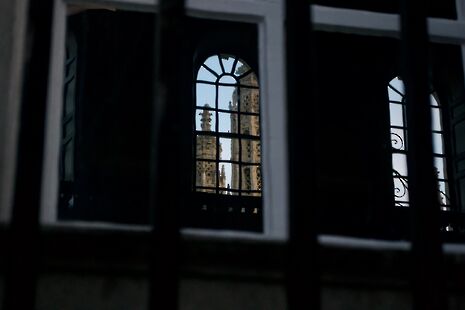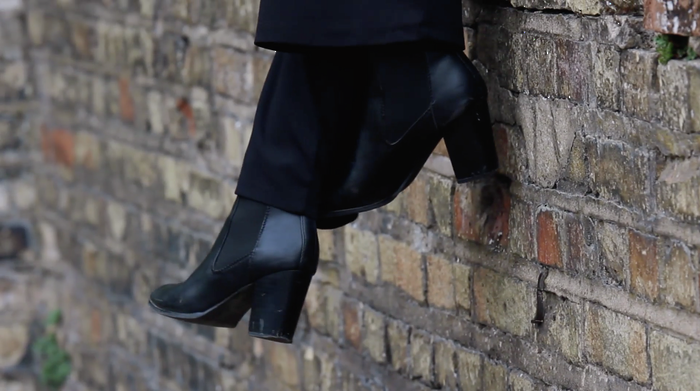Keeping a diary for when the memories of my Cambridge years fade
In time, I’ll read my diary back and ache for a world I think I missed

I am unusual, I suspect, among Cambridge students in that I have kept, with a fair fidelity, a diary of my time here. It is not, of course, from the traditional mould – this city is at its heart so predictable in its unpredictability, so chaotic in its demands of life, that to solemnly sit down each evening and make a record of the day is the preserve of those with far more discipline than I can muster – and so I scribble down memoranda, brief at best, during term, and recompile them months on during vacations (which always invite reflection so naturally). The history that results, then, can be slightly ‘off’, slightly hollow, never quite authentic – at times, indeed, not quite true, being at its heart the past filtered through the past.
And so I have before me some two hundred thousand words, a thick novel’s-worth of ramblings, digressions, half-processed invective, tedious minutiae, absurd vignettes; hours that stretch on for pages, weeks dismissed in a paragraph – all lumbering over the years from fervour, to misery, to detachedness, with this succession of voices which are recognisably mine without being me.
Quite why I persist with this project, whose lines are already crammed with people accentuated beyond their importance and are still devoid of so many great moments, I do not know. No doubt a clichéd horror at the fading of my memory plays a great part, but so does the idler’s love of playing at writing one’s own history. To look at my own past, to pick out a drunken mishap or an offhand comment, and retrospectively elevate it to the status of a critical juncture, to the dawning of an era I could never have seen at the time: I know it is mostly nonsense, for no true life could have a structure so easily discernible, and yet I keep at these flights of fancy, in that vague, illusory and yet necessary hope that by coming to terms with my past I might do a better job of the present.

Thoughts like this, of reminiscences and hypotheticals, are inextricably linked to regret. I think of regret as coming in two distinct forms, of ‘positive’ or ‘negative’ regret: the former being the regret that one did do something, the latter that one did not. In Cambridge, this most mutable of cities, it can seem that almost any folly can be absorbed by the stonework; the pace here is so rapid that no-one will care about anything one does within one year, and no-one will remember it within three. Whatever ‘positive’ regret is amassed, then, can dissolve remarkably quickly; faster, it sometimes seems, than it would anywhere else.
In your final year? Write about it.
Write for Varsity’s latest series, Ending Notes. Just email our Features team with a 150-word pitch about what’s on your mind as graduation approaches.
And yet this fact in itself makes the ‘negative’ regret only harsher. To know, as almost all of us do, that this is a unique time in one’s life, being the last, drawn-out meeting between the freedom of action and the freedom from – or the feeling of freedom from – consequences, and to know also that one has not made the most of the opportunity: together these trivial truths can be crippling. One can put it off through first year, it all keeping the aura of a beginning; in second year it is a little harder, but still one does not feel old; even in third year it is surprising how much grief one can tune out. But eventually it comes to us all: one starts to think of endings, and there rises a squeak in certain smaller cogs of memory (trivial matters, perhaps that on certain evenings I should have talked more or talked less, have come across as chattier or calmer, as neither raving lunatic nor stoic dullard) which at first can each easily be silenced – and yet if these build up, they merge, the noise transforms from a thousand small sources into one wide front, sounding loudly so that one can do nothing but look back at it, and so that one has to be careful that the whole system does not seize up.
Ah, you might say, this is all too overblown, too dramatic, for anyone but the truly neurotic; and most likely you are quite right. But who here can honestly say that they regret nothing? The chances that one picked just the right extracurriculars, fell in with the perfect set of friends, is, after all, almost nil; the number of forks in any of our paths is too large to enumerate, and who can know that they ever pick the better road? In this light it seems so overwhelming that to ignore it would be the only sensible answer; and yet to neglect the past’s lessons in their entirety would hardly be satisfying either.
Then I might try for a middle way; but it need hardly be said that Cambridge is no place for mediums. Perhaps in time, through loss of detail, these years will reduce to halcyon days which never quite ring true. But for now, if we are to make anything of the experience, I doubt there is much to be done beyond the obvious: to know that we have not lived life to the fullest, and to keep going anyway. I do not mean to say that such an action is always elegant or heroic; I would struggle to claim that, in the moment, it is always strictly ‘good’. And yet it is necessary, in that it seems the only option available to us.
And so I shall keep on at my diaries, recording such shades of events as I recall from these dying weeks. In time I shall read them back; think of the moments described, and too of those which are absent; ache without specifics for a world I think I missed, a world which I will admit I never could have created. And yet in all these thoughts, in all this swirling nonsense, the only implicit core is that it – whatever ‘it’ might be – is done, sealed off, finished yet incomplete. In the face of a city which so hastens to forget us, then, we have one method by which to endure – to regret, and to know our regrets.
 News / University Council rescinds University Centre membership20 February 2026
News / University Council rescinds University Centre membership20 February 2026 News / Hundreds of Cambridge academics demand vote on fate of vet course20 February 2026
News / Hundreds of Cambridge academics demand vote on fate of vet course20 February 2026 News / Cambridge academics sign open letter criticising research funding changes22 February 2026
News / Cambridge academics sign open letter criticising research funding changes22 February 2026 News / Union cancels event with Sri Lankan politician after Tamil societies express ‘profound outrage’20 February 2026
News / Union cancels event with Sri Lankan politician after Tamil societies express ‘profound outrage’20 February 2026 News / Judge Business School advisor resigns over Epstein and Andrew links18 February 2026
News / Judge Business School advisor resigns over Epstein and Andrew links18 February 2026









